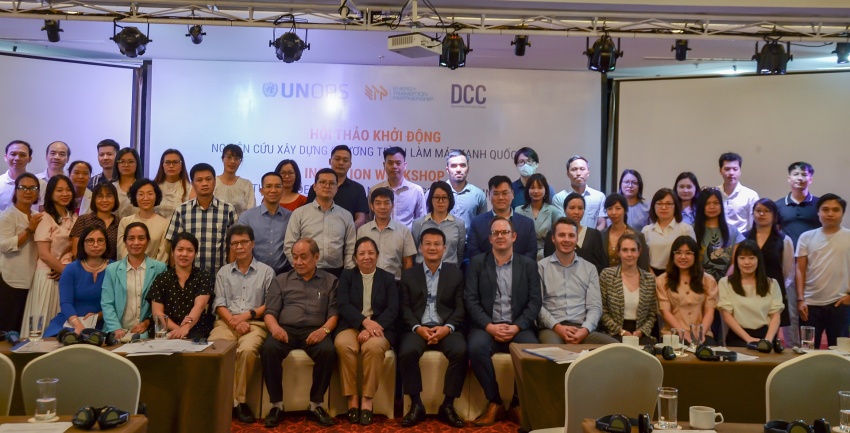
The project is implemented through a consortium of the Vietnam Energy and Environment Consultancy JSC (VNEEC), and Perspectives Climate Group. They bring together a consortium of local and international thought leaders. The assignment will be carried out in 12 months from February 2023 to February 2024.
The project was launched in the framework of workshop “In-depth study and survey to develop the National Green Cooling Programme (NGCP),” funded by the Southeast Asia Energy Transition Partnership managed by the United Nations Office for Project Services.
“The cooling sector is a critical component of Vietnam’s economy, and it is expected to grow rapidly in the coming years. At the same time, the sector contributes to greenhouse gas emissions and can have adverse impacts on vulnerable groups, including women, children, and low-income households,” said John Robert Cottoon, senior programme manager of the Southeast Asian Energy Transition Partnership.
“The development of the NGCP will assess and reflect the effects of increasing cooling activities and reducing GHG emissions on vulnerable groups, ensuring an inclusive and gender-balanced approach.
“The development of the NGCP will align with Vietnam’s latest GHG emissions targets and commitment to the net-zero target by 2050, ensuring that the proposed strategies and interventions are consistent with the country’s goals. The project team will successfully accomplish the assignment’s objectives, and the NGCP will provide significant contributions to Vietnam’s energy transition and greenhouse gas reduction goals.”
Climate change is already affecting Vietnam. According to the VNEEC, the cooling sector has grown significantly in the last 10 years and is expected to expand considerably in the next few years to meet the increasing cooling demand of the country. The global unit sales in the cooling sector will grow from 336 million in 2018 to 460 million by 2030.
Dang Hong Hanh, co-founder at VNEEC, said that cooling was an irreplaceable aspect contributing to the GHG emission reduction target.
“In the short term, the in-depth study and survey to develop the National Green Cooling Programme will provide an in-depth study that supports policymakers to establish National EE standards for different cooling’s subsectors in collaboration with an assessment that reveals the potential of the cooling sector in reducing GHG emissions contributing towards net-zero in Vietnam. Besides this, stakeholders are well-informed to prepare a transition towards a low-GWP and high-energy-efficient market,” Hanh said.
In the midterm, the NGCP with a clear roadmap serves as a platform to strengthen coordination between government agencies key stakeholders in the cooling sector concerning EE and climate change mitigation. Furthermore, the NGCP will provide input and is expected to be adopted to integrate into and develop the National Plan for Management and Phase-out of controlled substances that will be endorsed by the Prime Minister.
Oanh Nguyen




